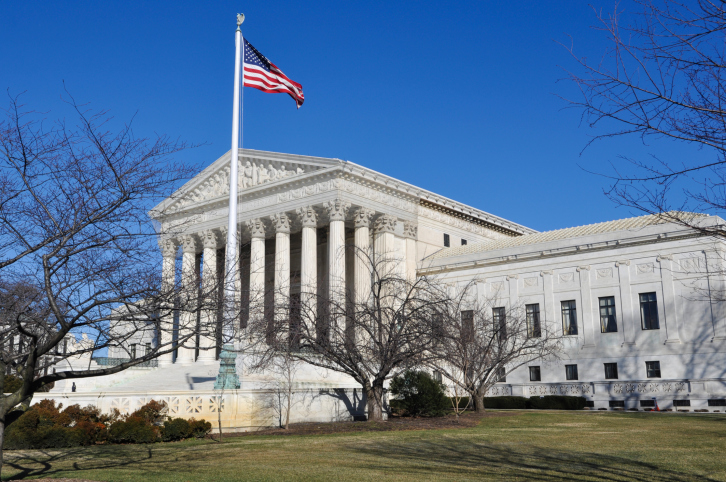By establishing work rules and contracts, and working through nonelected arbitrators, public unions have made government unaccountable to voters, columnist Michael Barone says
How did it come to pass that public employee unions, which scarcely existed 60 years ago, have come to run public schools and myriad state and local government agencies?
Answers to this question, which few people think about these days, come from Philip K. Howard’s latest book, “Not Accountable,” accompanied as in his earlier books (“The Rule of Nobody,” “Try Common Sense”) by outspoken outrage and generous dollops of common sense.
The rise of public employee unions in the 1960s was not inevitable. President Franklin Roosevelt, who wanted his New Deal programs to deliver results, explained that “the process of collective bargaining, as usually understood, cannot be transplanted into the public service.” That was in 1937, when New Deal legislation sparked the drives that vastly increased private-sector unionization. In 1955, when private-sector unionization percentages peaked, AFL-CIO President George Meany opined confidently that it was “impossible to bargain collectively with the government.”
That didn’t stop New York City Mayor Robert Wagner, eager to develop a political base independent of patronage-hungry Democratic machines, from authorizing the unionization of city employees in 1958. Nor did it prevent Wisconsin Gov. Gaylord Nelson from doing so for a state government known for pioneering nonpartisan civil service, nor President John F. Kennedy from doing so in 1962 for federal employees.
What were they thinking? Evidently, they saw unionization as the default system for employee relations. They thought public employees should be treated the same as auto workers or carpenters.
But as Roosevelt and Meany saw, the two situations were not the same. Private-sector unionism is adversarial but with both sides understanding the need for profitability. Public-sector unionism, in contrast, is collusive. As longtime New York public union head Victor Gotbaum explained, “We have the ability, in a sense, to elect our own boss.”
And government doesn’t have to make profits. Taxes can be raised to fund current benefits, and distant-future pension promises don’t have to meet Employee Retirement Income Security Act standards.
As a result, Howard writes, “the interests of public unions and political leaders aligned to create a kind of bureaucratic kleptocracy.” Some $5 billion of taxpayer funds pour into public employee union coffers, outspending every other political group, especially in state and city elections.
Howard is less concerned about public unions’ monetary cost, however, than with the fact that they “have become a permanent faction exercising control over the operating machinery of state and local governments.” By establishing work rules and contracts, and through decisions of nonelected arbitrators, public unions have made government unaccountable to voters.
The results are bad government. Howard begins by focusing on police unions, citing the Minneapolis officer convicted of killing George Floyd. He shows how teacher unions have produced decades of disappointing results and how they unnecessarily closed many schools for two years — with dire effects on underprivileged children.
These unions have fought hard to keep the public money flowing into their coffers and political committee. They resisted Scott Walker’s 2011 reforms in Wisconsin, flooding the state Capitol for days with thousands of protesters (which didn’t bother many who were appalled by the Jan. 6, 2021, Capitol riot).
They have resisted the Supreme Court’s 2018 Janus v. AFSCME decision, limiting members’ right to opt out of their political spending to just a few summer days when the required union co-signer just might happen to be on vacation.
All of which, Howard argues, is unconstitutional. Article II of the Constitution, he notes, says, “The executive power shall be vested in a president of the United States of America.” But can a president “take care that the laws be faithfully executed” without the power to fire an incompetent employee? “Preserving the management authority of officials is essential to our constitutional structure,” he writes.
As for the more numerous and powerful state and local government unions, “by severing the link between the ballot box and executive and legislative power, public unions have disabled the ‘Republican Form of Government’ guaranteed by” Article IV of the Constitution.
The Supreme Court has been unwilling to specify what that guarantee means. But it’s possible that a hard-pressed mayor might have standing to challenge union-friendly state laws that force him to spend money in ways neither he nor the voters who elected him wish. A court might find that’s not a republican (or democratic) form of government.
Howard doesn’t expect immediate results but hopes “Not Accountable,” like Upton Sinclair’s “The Jungle,” will spark demands for reform. It’s impossible to make the case that public employee unions over the last half-century have improved the performance of government and easy to make the case they’ve worsened it.
T
Thanks to Philip Howard for making it clear that Franklin Roosevelt and George Meany got it right.
Michael Barone is a senior political analyst for the Washington Examiner, resident fellow at the American Enterprise Institute and longtime co-author of The Almanac of American Politics.
COPYRIGHT 2023 CREATORS.COM
For more from Budget & Tax News.
For more public policy from The Heartland Institute.
